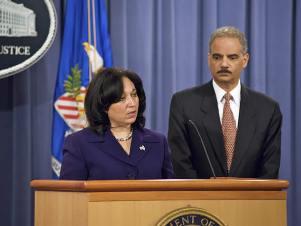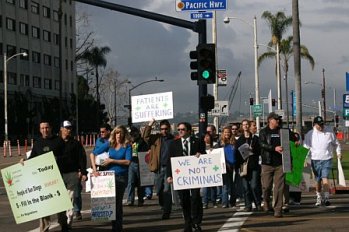Press Release -- Montel Williams to NY Legislators: Pass Medical Marijuana Now
PUBLIC STRATEGIES, LLC
FOR IMMEDIATE RELEASEÂ Â Â Â Â Â Â Â Â Â Â
JUNE 29, 2010
Montel Williams to NY Legislators: Pass Medical Marijuana Now
Former Talk Show Host, MS Patient Urges Albany Lawmakers to Act Without Delay
CONTACT: Vince Marrone â¦â¦â¦ 914-912-0526 or [email protected]
ALBANY, NEW YORK â At a press conference in Albany on Tuesday, former talk show host, U.S. Navy officer and New York City resident Montel Williams urged New York Governor David Paterson and members of the Legislature to act quickly in order to pass New Yorkâs medical marijuana bill.Â
           The New York bill would create one of the best-regulated systems in the country for providing seriously ill patients with safe and effective access to medical marijuana. Mr. Williams suffers from multiple sclerosis, and uses medical marijuana to help ease the effects of his condition.
           âNew York needs to act now to make marijuana legally available for medical use. Every day that we delay is another day of needless suffering for patients like me all across the state,â Williams said.
           âThousands of New Yorkers suffer from serious medical conditions that could benefit from the medical use of marijuana,â said Assembly Member Richard N. Gottfried, Chair of the Assembly Health Committee and sponsor of the Assembly medical marijuana bill. âIf the patient and the doctor agree that the most effective medicine is marijuana, the government should not stand in the way. It is cruel to turn suffering patients into criminals when they are following what their doctor recommends.â
           âMedical use of marijuana for patients with acute conditions like HIV/AIDS, cancer, multiple sclerosis, and glaucoma relieves chronic pain and nausea and increases appetite,â said Sen. Eric Adams (D-Brooklyn), a former New York City police captain. âWhen our fellow humans are burdened by the dire effects of life-threatening illnesses, we must not allow insubstantial ideological arguments to increase their suffering. The proposed medical marijuana legislation contains the critical safeguards needed to guard against diversion or abuse and establish access for patients in need. It is our moral and ethical duty to alleviate misery in our fellow human beings. Any other substance shown to have such beneficial effect would already be in the arsenal of medical practitioners. I wholeheartedly urge passage of this legislation.â
           Also joining Mr. Williams was Craig Burridge, executive director of the Pharmacists Society of the State of New York (PSSNY). PSSNY recently came out in support of New Yorkâs medical marijuana bill.
           âNew York has the opportunity to provide a model on how to mainstream medical marijuana to those patients who so desperately need it,â Burridge said. âFor those of us who have seen the suffering of a loved one, passage is long overdue.â
The New York bill would:
 * Allow patients facing serious, life-threatening or debilitating illnesses to get marijuana upon the recommendation of their physician.
 * Limit patient possession to no more than 2.5 ounces.
 * Grant the Department of Health the authority to license medical marijuana producers and dispensers, consistent with rules mirroring the state Controlled Substances Act.
 * Allow the Department of Health to establish fees sufficient to cover the cost of administering the program.
 * Allow state-licensed organizations, including pharmacies, to dispense medical marijuana to qualified patients.
 * Allow state-licensed organizations to produce marijuana for sale to dispensers only.
           Since 1996, 14 states and the District of Columbia have passed medical marijuana laws. More than a dozen state legislatures considered the issue this year, and in November, citizens of Arizona and South Dakota will vote on medical marijuana ballot initiatives. Under New Yorkâs bill, the state department of health would play an active role in regulating pharmacies and dispensaries that would be licensed to provide medical marijuana to qualified patients.
####







![[object Object]](http://control.mpp.org/images/content/pagebuilder/11445.png)

